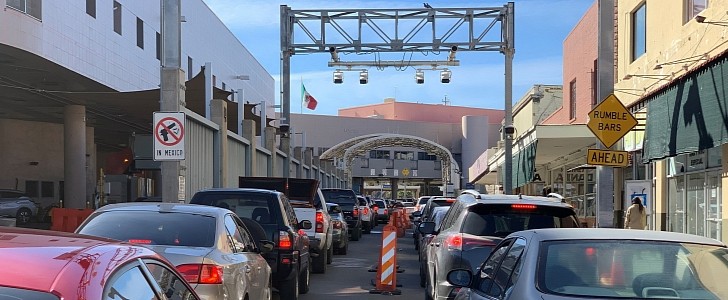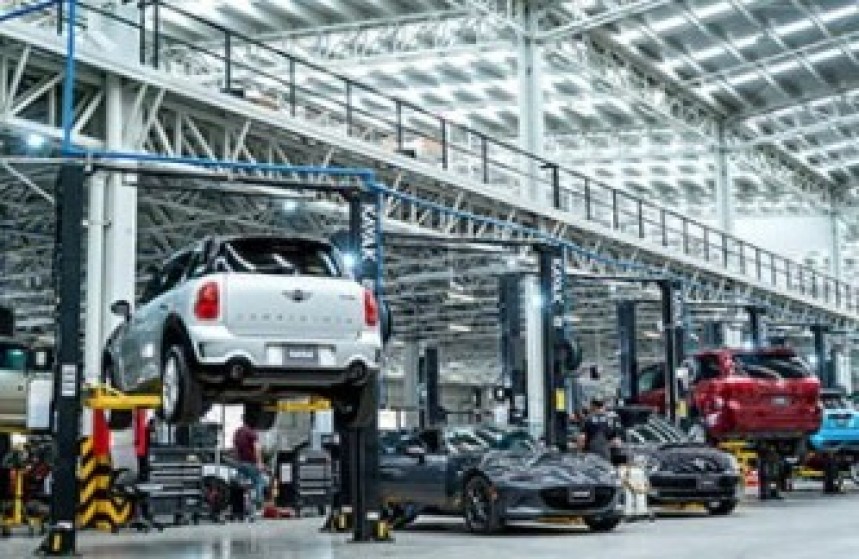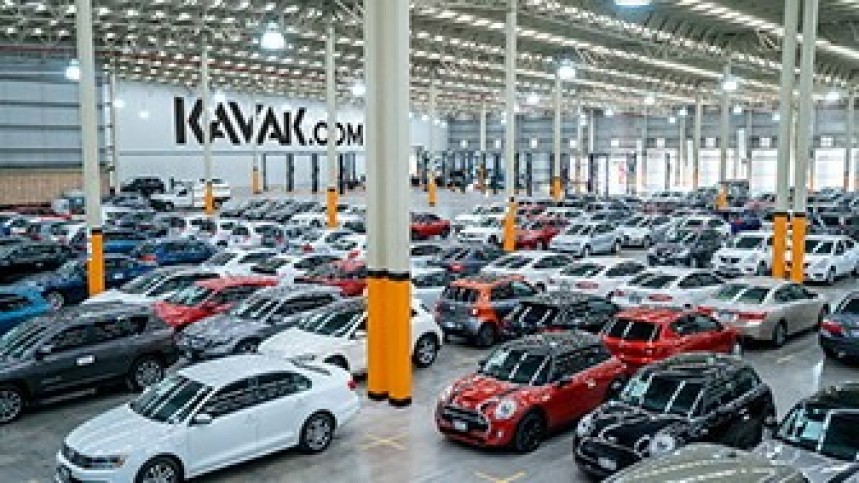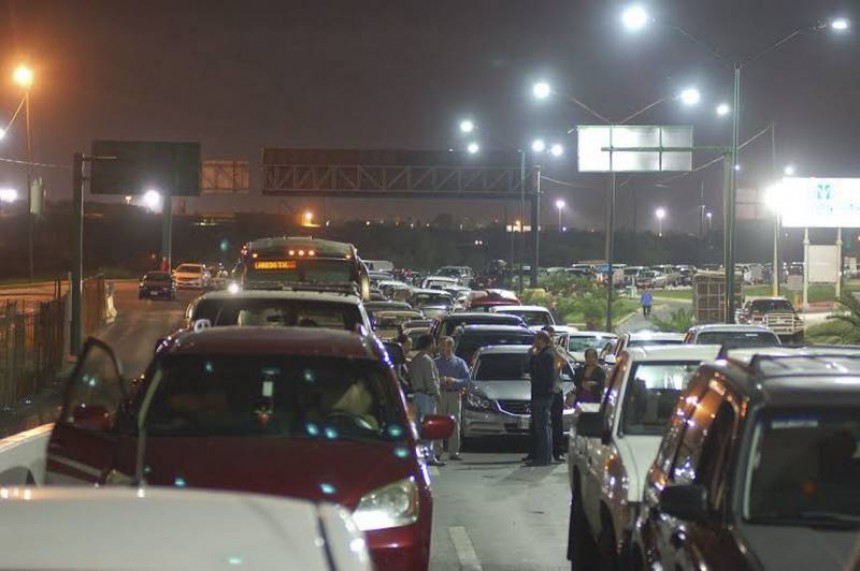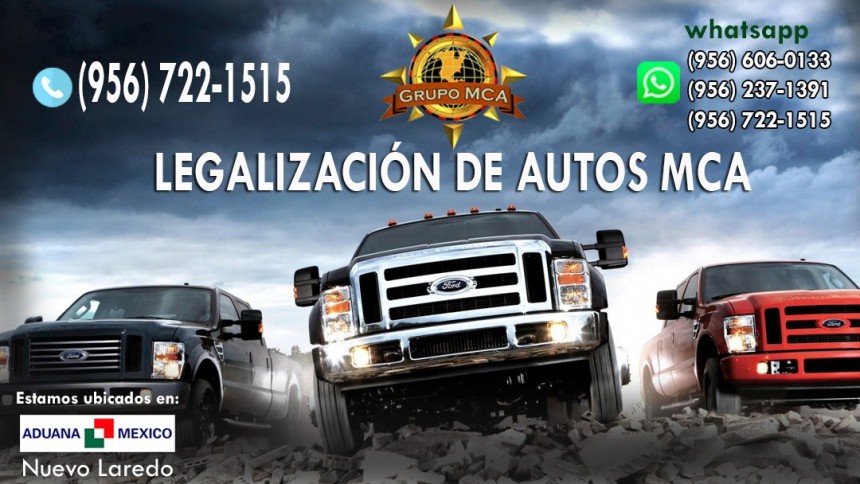In a market already squeezed by shortages of used cars and unusually high prices, a decree in Mexico to legalize millions of imported used cars - most from the United States - has been slammed by that country's powerful auto sector players as essentially turning a blind eye to "car smuggling."
"It is a mistake to legalize smuggled vehicles,” at least according to Guillermo Rosales Zárate, the Director of Mexico’s Association of Automotive Distributors. “It will have an impact on the economy, as well as create concerning environmental pollution and insecurity that threatens people's lives,"
The AMDA expects new car sales to drop “more than 30%” in reaction to the decree and called the move "a reward for the criminal mafia and corrupt bureaucracy."
This policy, published in the government's official gazette, calls for local authorities to implement a plan meant to encourage residents of states bordering the United States to officially register vehicles driven into Mexico. Those cars are known colloquially as ‘chocolate cars.’
The Baja state alone is thought to be home to 500,000 unregistered vehicles. State Security Minister Rosa Rodriguez says those cars are often used to commit various crimes.
Mexican President Andres Manuel Lopez Obrador defended the policy and said funds collected from the decree - 2,500 pesos ($124 USD) - will be earmarked for regional road works.
The plan seemingly plays into a variety of cross-border schemes surrounding cars crossing the U.S/Mexico international line. Every day thousands of vehicles cross the two bridges that connect Interstate 35 and the city center of Nuevo Laredo, Mexico.
In the past, the ADMA has called on Lopez Obrador to adopt policies and dedicate funds to address the scams used to move contraband cars across the border.
The cartels are said to be involved in the trafficking, and each day as drivers pay their toll at the international bridge on the U.S. side of the Rio Grande river then drive across the border where they come into contact with Mexican customs and military officials who randomly inspect vehicles.
At this point, drug cartels use lookouts to prevent any cars that might be crossing without the gang's permission. The scheme goes something like this: A small number of "nationalization companies" operate on both sides of the border. The companies take money from customers on the U.S. side to pay the taxes and fees in Mexico, then provide import permits. But before the nationalization companies complete the transfer paperwork, the cartels add hundreds of dollars to the bill, which will then be divided between the cartels and corrupt Mexican officials, at least according to U.S. prosecutors.
The Cartel de Noreste, a reformation of the damaged Zeta cartel, is now said to be in control of politics and territory key to the car import scams.
“The border is so lucrative because by controlling the border, you control aduanas (Mexican customs officials),” says Arturo Fontes, a former FBI agent.
High vehicle prices in Mexico have contributed to the problem and made the country a major market for used U.S. cars and trucks. Officials say as prices have dropped in Mexico and climbed in the U.S., ‘entrepreneurs’ import junked cars from the U.S. and sell them in Mexico. Some are imported legally with a fake title, and others are simply driven across the border ostensibly as personal vehicles entering the country on a temporary basis.
According to Rosales, it all amounts to the same outcome.
"This is the consequence of the tolerance, and in many cases the complicity, of local authorities, state governments, and customs officials themselves. Everyone at the border knows the modus operandi; they know who carries it out, and simply put, do nothing to stop it," Rosales says.
The number of used cars imported to Mexico from the U.S. ramped up increased during the first half of 2021 as COVID-19 pandemic restrictions were lifted, but during the winter, as people head south, the number of cars crossing into Nuevo Laredo amounts to some 10,000 a day. Rosales says the travelers bring along used vehicles to sell - or give - to family members.
And the Cartel de Noreste activity in regard to auto importation is a low priority as officials say it’s time-intensive to investigate, and the cartels can change their business models at the drop of a hat.
The last large prosecution of the activities from federal prosecutors resulted in indictments handed down to 11 people in connection with four nationalization companies operating on both sides of the border, and that came six years ago. The companies process the paperwork, calculate and pay Mexican import taxes.
As a result of that case, in 2018, the owners of Grupo MCA agreed to turn over real estate valued at more than $10 million. For their part, Grupo MCA says they were forced to carry out the will of the Zeta cartel under threat.
The AMDA expects new car sales to drop “more than 30%” in reaction to the decree and called the move "a reward for the criminal mafia and corrupt bureaucracy."
This policy, published in the government's official gazette, calls for local authorities to implement a plan meant to encourage residents of states bordering the United States to officially register vehicles driven into Mexico. Those cars are known colloquially as ‘chocolate cars.’
Mexican President Andres Manuel Lopez Obrador defended the policy and said funds collected from the decree - 2,500 pesos ($124 USD) - will be earmarked for regional road works.
The plan seemingly plays into a variety of cross-border schemes surrounding cars crossing the U.S/Mexico international line. Every day thousands of vehicles cross the two bridges that connect Interstate 35 and the city center of Nuevo Laredo, Mexico.
In the past, the ADMA has called on Lopez Obrador to adopt policies and dedicate funds to address the scams used to move contraband cars across the border.
At this point, drug cartels use lookouts to prevent any cars that might be crossing without the gang's permission. The scheme goes something like this: A small number of "nationalization companies" operate on both sides of the border. The companies take money from customers on the U.S. side to pay the taxes and fees in Mexico, then provide import permits. But before the nationalization companies complete the transfer paperwork, the cartels add hundreds of dollars to the bill, which will then be divided between the cartels and corrupt Mexican officials, at least according to U.S. prosecutors.
The Cartel de Noreste, a reformation of the damaged Zeta cartel, is now said to be in control of politics and territory key to the car import scams.
“The border is so lucrative because by controlling the border, you control aduanas (Mexican customs officials),” says Arturo Fontes, a former FBI agent.
According to Rosales, it all amounts to the same outcome.
"This is the consequence of the tolerance, and in many cases the complicity, of local authorities, state governments, and customs officials themselves. Everyone at the border knows the modus operandi; they know who carries it out, and simply put, do nothing to stop it," Rosales says.
The number of used cars imported to Mexico from the U.S. ramped up increased during the first half of 2021 as COVID-19 pandemic restrictions were lifted, but during the winter, as people head south, the number of cars crossing into Nuevo Laredo amounts to some 10,000 a day. Rosales says the travelers bring along used vehicles to sell - or give - to family members.
The last large prosecution of the activities from federal prosecutors resulted in indictments handed down to 11 people in connection with four nationalization companies operating on both sides of the border, and that came six years ago. The companies process the paperwork, calculate and pay Mexican import taxes.
As a result of that case, in 2018, the owners of Grupo MCA agreed to turn over real estate valued at more than $10 million. For their part, Grupo MCA says they were forced to carry out the will of the Zeta cartel under threat.
